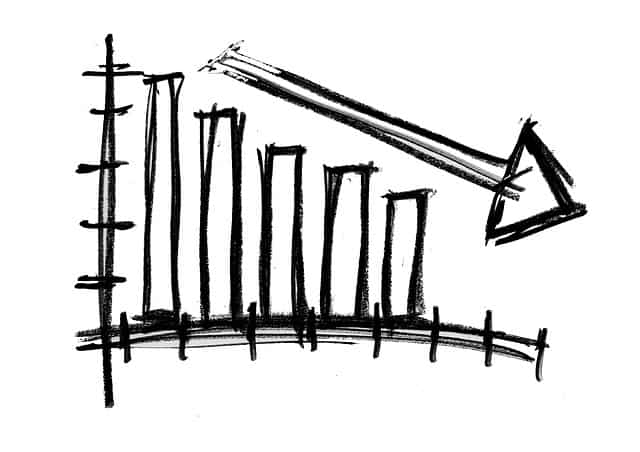For several years now we’ve seen a booming economy, lifting ourselves out of the Great Recession a decade ago. The stock market has soared, unemployment numbers continue to fall and overall it seems like there’s nothing but a rosy future to look forward to.
And yet … maybe not. In the last few months we’ve started to see some signs that maybe not everything is as great as we had hoped. As these signs continue to appear, many economists are starting to adjust their forecasts. Will our economy continue to grow? Or is it slowing down? Is this just a temporary setback? Or is there another recession looming on the horizon?
While it’s impossible to predict the future, knowing the signs can help us get a handle on what may come next. And as a small business owner, knowing what’s possible can help you prepare and make plans for any contingency.
The Signs
Even though the general trends are good, recent events and headlines have started to give some economic forecasters a reason to worry.
The ongoing trade disputes with China, for example, have caused a considerable amount of worry for some. Even those who aren’t directly affected by this have taken a hit, as these conflicts have turned the stock market into a virtual roller coaster. There have been huge swings both up and down — with a few recent days ending with the market hundreds and hundreds of points in the red (including the record setting 600 point, 2% plunge on August 23rd).
On the upside, in October, an agreement was reached regarding international trade with China. Will it hold, or will a tweet cause the agreement to crumble? Most people are moving past social media hype of bad influencers and standing on contracts and agreements for a path forward.
Even though one or two days can be considered an aberration, more and more experts are starting to predict that this will remain volatile for the months to come. There are other trends suggesting an overall market correction. Regardless, this sort of uncertainty can cause both short- and long-term problems as business owners, consumers and investors struggle to cope and find alternate solutions.
In addition to the problem on Wall Street, a recent report revealed that our unemployment numbers, while still good, are not quite as good as originally thought. This report states that in 2018 over a half-million fewer jobs were created than was originally thought. The report shaved the numbers of newly created jobs by nearly 20% — and while job numbers corrections are commonplace, a correction of this size most certainly is not. This indicates to many that the huge boom that many expected after the latest round of tax cuts simply did not happen.
The Forecast
With data like this, what can we expect for the future? The good news is that most experts are still predicting the US economy to remain relatively strong in 2019. Total growth is expected to slow down slightly (to around 2% as opposed to 3%) but most are predicting that the coming year will still be favorable. However, with the trade war looming, the election cycle gearing up and other factors coming into play, many experts are less sure than you would hope. And when it comes to after 2019? The picture gets even fuzzier.
The Point
So, as a small business owner, what should you make of this data? What can you do to prepare for the possibility of an economic slowdown? How will this affect you?
As you can imagine, there’s still too much up in the air to make definite predictions. However, most experts agree (and history has taught us) that any future downturn will affect small businesses more than other businesses, as they have a much smaller margin for error to work with. If these negative “hiccups” turn into downward trends, small businesses may once again bear the brunt of financial losses, and we can expect to see many businesses close or go further into debt to stay afloat.
To prepare for this, it’s not a bad idea to begin shopping around now. Look for refinancing options at lower rates, consolidation offers and other ways you can reduce your monthly payments. Find areas in your business where you can save pennies, because those pennies add up quickly!
If you have old or outdated equipment that you’ve been hoping will last, replacing that equipment now might save you money in the future when you’re forced to replace it — and unable to afford the luxury of shopping for the best rates.
If you’ve been considering a move, doing so now might serve you better than finding yourself needing to move in the future — and not being able to sell your property due to a downturn.
In short, the best move is to think about your options and take care of them now, while there are options to choose from and you have that ability. There’s no telling how those options might dwindle if — and we hope it’s only an if — the worst forecasts prove to be right.
Start with a conversation. Contact our brokers today to start with a review of your current financial position. We will help you identify opportunities for managing your borrowing, cash flow and interest rates into market adjustment, because better rates and better financial planning never hurt in an upswing.

